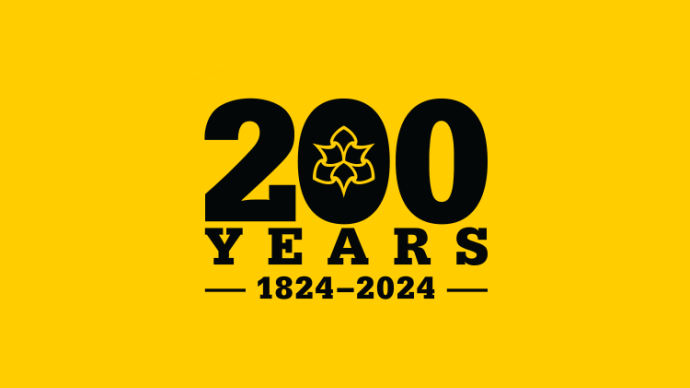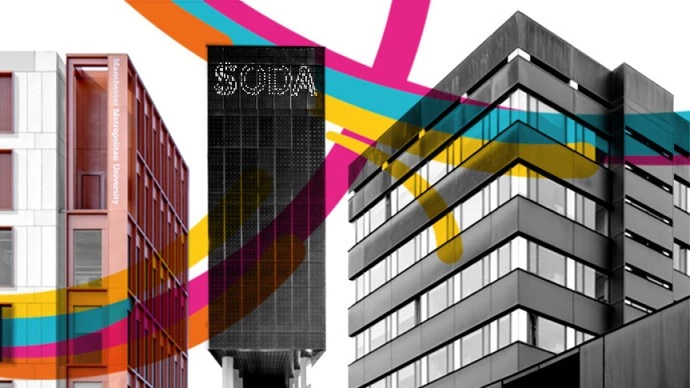The role of 3D printing in providing sustainable heating
Header image

Standfirst
In this piece, we explore how Manchester Met has supported the sustainable energy company, Enviroheat with product development using innovative 3D printing approaches, reducing costs and the carbon impact of the company.
Main story
Enviroheat is an SME with a clear mission – to make energy accessible to all. Since launching in 2011, they have worked to develop cutting-edge technology, focusing on eliminating fuel poverty.
Their products are changing how water and homes are heated. A normal hot water cylinder will provide around 190 litres of hot water while a smart cylinder can produce up to 300 litres of hot water using up to 30% less energy than a standard cylinder. It also increases the renewable storage capacity by up to 30%.
The company is constantly evolving. Its approach is to develop the latest technology in energy use and innovative product design.
Finding low-carbon solutions for businesses
During lockdown, the company was working on a new product to make the business stronger post Covid. It was at this time that Commercial Director, Luke Cronshaw took part in the ECO-I programme. Manchester Met is a key partner in the programme which provides innovation workshops to businesses to support the implementation of low-carbon solutions and the achievement of ‘Net Zero’ targets.
By applying principles, strategies and processes from the workshop, the company produced an electronic panel to control hot water cylinders and improve their efficiency with any primary heat source. They also needed to encase the printed circuit board, touch screen and other components safely. Initial attempts to make a case in-house using 3D printing had worked but needed to be scalable.
From the workshop, Luke joined the PrintCity cohort to learn more about the technological advances in 3D printing and was particularly interested in using resin. Taking part in the PrintCity cohort showed Luke the different types of printing technology available and offered the chance to trial printing the cases in resin.
The resin prints initially failed, but the company was determined to make it work. They bought a resin printer, and after 3 weeks, had printed the first case. They experimented with textures to refine the surfaces of the casing which are a honeycomb design featuring the Manchester bee. Another two printers were purchased to print casings at scale.
The printers and resin cost lost than £3k, each printed case costs £13 per unit and they can make fifty per week. If the company had taken an alternative option of using plastic injection moulds, the upfront cost would have been up to £80k with each case costing around £16, long lead times and a significant carbon impact due to overseas production.

Luke commented: “We are really pleased with how far we have been able to push this technology. We are now fixing so many problems and creating new components in-house.
“It has transformed how effective we are. So far, we have produced new casings, engineered a specific non-return valve in a pump head and brackets for the electric radiators we manufacture. Anything that we need to produce, we can print.
Anything that we need to produce, we can print.
“It can be challenging to find manufacturers who can produce the bespoke components that we need at scale for a suitable cost – they price us out. Now we can do it ourselves within 3 weeks.
“Most importantly, it has reduced the carbon impact of the business. As a company that is producing low carbon technology, it is imperative that we minimise our carbon impact and this is enabling us to do so.”
Reducing the impact
The carbon saving by opting for 3D printing in-house is significant. The impact of manufacturing plastic casing overseas would have been 1.42 kg CO₂ per case. By 3D printing the cases in resin, the carbon impact is significantly lower at 0.91 kg CO₂. This amounts to an overall reduction of about 36% in CO₂ emissions.
The company continues to push the boundaries and experiment, printing other types of resin-based components, and testing out heat methods to ensure that products are robust and can stand up to stress tests.
The city of Manchester has a rich industrial history. As the University celebrates its 200th anniversary, it continues to support this legacy, collaborating with businesses to transform their ideas into a reality in the most sustainable way.
More research
Discover more
-
![Dr Dave Megson smiling at the camera.]()
How environmental chemistry is hitting the headlines
Find out more -
![Professor Liz Price smiling]()
Building a brighter future
Find out more -
![Andy Ridley in a citizens of the great barrier reef shirt smiling at the camera]()
A Q&A with Andy Ridley
Find out more
About 200 years
Manchester Met celebrates two centuries of driving progress through excellent education and research.
-
![200 years 1824-2024]()
200 years
Find out more -
![Siemens Chief Executive Carl Ennis posing with the firms degree apprentices]()
Driving economic growth
Find out more -
![Two nurses standing together and smiling]()
Transforming health
Find out more -
![A digital image of the university's arts buildings]()
Championing creative excellence
Find out more







